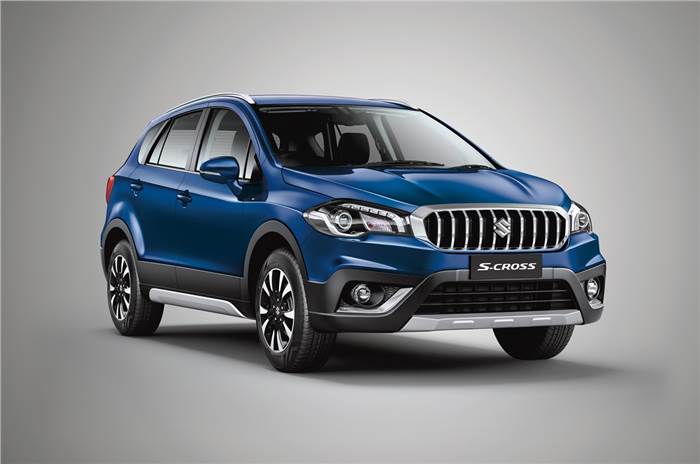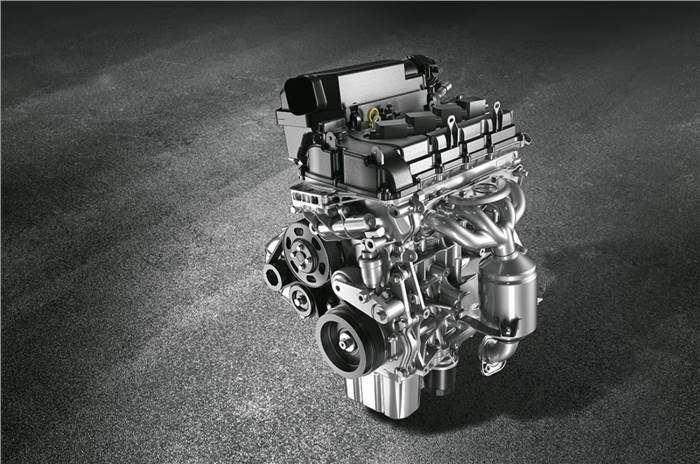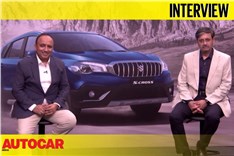Maruti Suzuki recently reintroduced the S-Cross for the BS6 era. The 2020 model year SUV ditches the erstwhile 1.3-litre diesel engine in favour of a 1.5-litre petrol unit that is shared with the Vitara Brezza compact SUV. With the change in motive power, the S-Cross SUV is directed at a new demographic, says Maruti.
- Petrol S-Cross with optional automatic transmission to appeal to urbanites seeking refinement and convenience
- Maruti sees a shift away from diesels for entry-level and mid-range SUVs
- Company believes people prefer higher capacity engines
However, by employing naturally-aspirated engines and conventional gearbox options for its range of SUVs, Maruti Suzuki has seemingly fallen behind the curve in terms of technology, vis-à-vis competition. Its rivals have moved on to BS6 diesels and turbo-petrol powertrains, as well as more sophisticated varieties of automatics. Read on, as we delve deeper into the automaker's game plan for our market.
Preference for petrol over diesel
Diesels are known for their frugality, and lower running costs are one of the biggest USPs for diesel buyers – something which is all the more important for big, heavy SUVs. However, with the price gap between petrol and diesel fuels closing in and diesel engines seeing a significant price mark-up in the BS6 era, Maruti believes the cost advantages of diesel powertrains have evaporated for most users, paving the way for petrols in the SUV segment. "Even in the SUV category, recent data suggests that there is definitely a move towards petrol," commented the company's executive director for sales and marketing, Shashank Srivastava, in a recent interview with Autocar India.
Srivastava also added that the increasing demand for a refined petrol engine and the convenience of an automatic will not just enable the updated S-Cross to rake in decent sales, but also better the numbers of the previously diesel-manual-only model. “We are going to position it as an urban SUV. A large chunk of customers in this category, they really want something which is refined yet powerful,” he said.
However, a point that might be getting overlooked in this rationalisation of petrols is that a not-so-insignificant share of Indian customers still opt for diesels for the mid-range performance that they've come to expect from SUVs. Naturally aspirated petrols, with their linear power delivery, fall short in this regard. It is only turbocharged petrol engines that hold the promise of offering a diesel-like performance and this happens to be another technology that the country's largest automaker seems apprehensive about.
Maruti's reluctance for small-capacity turbo-petrols
Compensating for the shift away from diesels, many automakers in the country are either replacing or supplementing oil burners in their line-ups with turbo-petrol engines in an effort to offer a torquey driving experience synonymous with SUVs. All of S-Cross' rivals, for instance, come with turbo-petrol options, in addition to naturally aspirated units. The Nissan Kicks gets the 1.3-litre HR13 turbocharged engine, which will soon make its way to the Renault Duster too. The Hyundai Creta and Kia Seltos pack in the 1.4-litre T-GDi powertrain in sportier variants. Maruti, however, has showed reluctance for smaller-capacity turbo-gasoline mills.
Explaining the rationale, CV Raman, senior executive director, engineering, Maruti Suzuki India told Autocar India, "Our market research has showed very clearly that people prefer a higher-size engine compared to a downsized engine. So from that perspective, (naturally aspirated) 1.5-litre was something which we felt would be better for the S-Cross customers."
The company has previously tried its hands once at a forced-induction petrol powertrain – the 1.0-litre DiTC Boosterjet engine – which did duty on the Baleno RS. The model, however, found few takers, which might be attributed to the Indian market not being mature enough to accept hot hatchbacks yet, or to Maruti positioning the model as a niche offering. The latter point is something that the competition seems to be addressing by organically integrating turbo-petrols into their mainstream SUV offerings, and sales numbers of some of the models like the Creta and Seltos do show that the strategy seems to be working.
On the other hand, reinforcing the lack of a need to have forced-induction gasoline powertrains in their line-up, Maruti's engineering head pointed out, "Also, we don’t do high-revving driving like in Europe, so I think that makes a lot of difference because on the lower end, you have issues till the turbo kicks in. So naturally aspirated engines would give a more linear performance for the customer, especially in city driving."
Old-school automatics remain the norm for Maruti Suzuki
Maruti has introduced the BS6 S-Cross with an optional 4-speed automatic, and the automaker seems to be sticking with the old-school torque convertor unit for its premium models. Rivals, in comparison, have moved on to more advanced automatics – the Nissan SUV comes with a CVT, while Hyundai and Kia offer a DCT. These brings in a fair few advantages, ranging from a smoother drive with the CVT and quicker gearshifts with the DCT, to superior fuel efficiency for both. The torque convertor setup, in comparison, comes with a mileage penalty of about 10-15 percent vis-à-vis a manual transmission.
Maruti is tackling the fuel economy issue by bundling its conventional automatic transmission with mild-hybrid tech on the S-Cross. Raman commented, "From a fuel efficiency perspective, the manual transmission delivers 18.55kpl and the automatic transmission does 18.43kpl. There is hardly any difference as far as the fuel efficiency for the customer is concerned, and that's a key consideration set for the automatic customer." Moreover, the electrified technology has also made the S-Cross the most frugal petrol in its class.
Price advantage
Despite the hybrid setup, the choice of conventional powertrains has allowed Maruti Suzuki to significantly undercut the competition on price with the S-Cross. What also aids the automaker's aggressive pricing strategy is a shorter equipment list, compared to rivals that boast of some new-age features, including ventilated and powered front seats, connected car systems, wireless phone chargers, sunroofs and digital instrumentation.
| Maruti Suzuki S-Cross vs rivals: Price | |||||
|---|---|---|---|---|---|
| Maruti Suzuki S-Cross* | Renault Duster* | Nissan Kicks^ | Hyundai Creta* | Kia Seltos* | |
| Petrol MT | Rs 8.39-11.15 lakh | Rs 8.49-9.99 lakh | Rs 9.50-13.90 lakh | Rs 9.99-13.46 lakh | Rs 9.89-16.39 lakh |
| Petrol AT | Rs 10.83-12.39 lakh | - | Rs 13.45-14.15 lakh | Rs 14.94-17.20 lakh | Rs 14.34-17.29 lakh |
Analysis of Maruti's product strategy reveals that the country's largest carmaker is playing to its strengths by basing its portfolio on strong fundamentals and proven technology. Only time will tell how consumers respond, especially with other automotive brands moving on with more contemporary tech in an attempt to win a bigger market share.
*Prices, ex-showroom, Delhi
^Prices, ex-showroom, India
Also see:
Shashank Srivastava and C V Raman talk about the Maruti Suzuki S-Cross petrol and more
How Maruti Suzuki is making a case against diesels using a cost calculator
Maruti Suzuki targets robust expansion for Nexa retail network








Comments
Member Login
Personal Details
No comments yet. Be the first to comment.